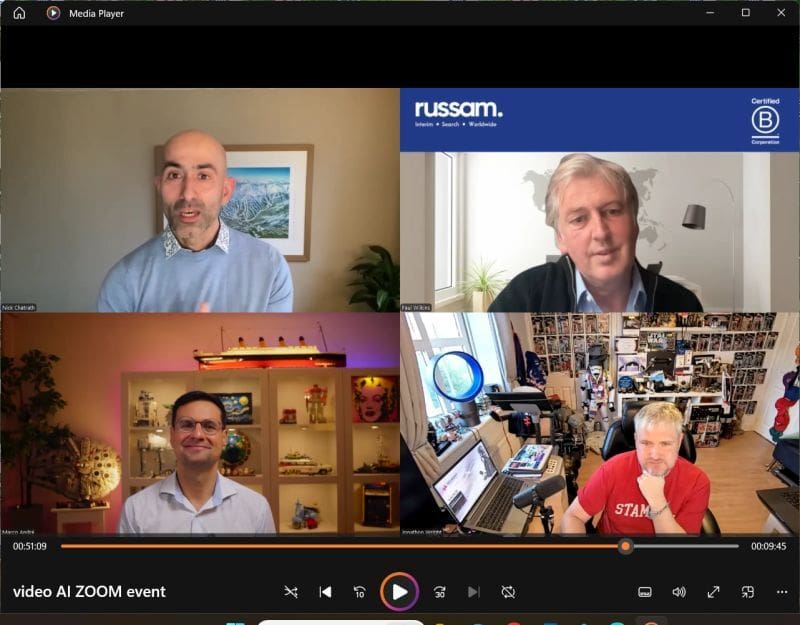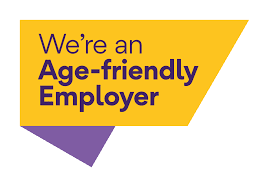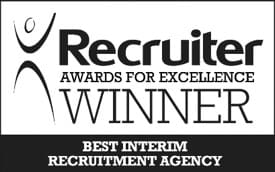Russam Panel Discussion: The Rise of the Chief AI Officer – Key Takeaways
We were delighted to recently host an expert panel discussion on The Rise of the Chief AI Officer, featuring distinguished guest speakers from across the AI landscape. The event explored critical questions about AI leadership, global strategies, and organisational readiness. Below, we share the key insights from this thought-provoking conversation.
1. The Chief AI Officer Debate: Essential Role or Transitional Position?
Our panellists offered diverse perspectives on the need for dedicated AI leadership:
- Jonathan Wright (Chief AI Officer, Silicon Valley) advocated for the role, emphasising its importance in governance, strategy alignment, and navigating rapid technological change.
- Nick Chatrath (AI and Business Transformation Expert) noted the risk of role proliferation, suggesting AI responsibilities could sit under existing C-suite positions like CTO or CDO.
- Marco Andre (AI Strategy and Simplification Expert) viewed the CAIO as potentially transitional, arguing that “AI ownership must eventually sit with every business leader.”
Key Insight: The CAIO role must be business driven with buy in from the board.
2. Global AI Strategies: Contrasting Approaches
The panel compared regional developments:
- US: Leading in innovation and infrastructure investment but lagging in regulation.
- Europe: Pioneering regulatory frameworks like the EU AI Act, prioritising ethics and compliance.
- China: Excelling in cost-efficient scaling and strategic alignment between commercial and state priorities.
Takeaway: Organisations can learn from each region’s strengths—combining US agility with European governance.
3. Overcoming AI Adoption Challenges
Common hurdles identified included:
- Legacy systems blocking progress
- Talent shortages, particularly in data engineering
- Misalignment between AI ambitions and maturity (only 1% of companies are “AI mature” per McKinsey)
Advice for Leaders: Start small, leverage available guidelines (e.g., UK AI Assurance Framework), and focus on incremental capability-building. Must plan now or become obsolete.
4. Building AI Leadership and Capability
Critical recommendations emerged:
- Look beyond technical skills when hiring AI leaders—business acumen and change management are equally vital
- Invest in AI literacy across all levels of the organisation
- Address shadow IT risks through clear governance
Russam Perspective: These insights align with our experience placing transformational leaders—success requires balancing technical understanding with strategic vision. Skill shortages as regards genuine AI expertise – companies must re-skill. Employing interim AI strategists to provide road maps and assistance with up skilling maybe vital.
Conclusion
As Jonathan Wright powerfully stated, “We’re entering an era where ideas can become reality faster than ever before.” This discussion underscored that AI success depends less on titles and more on developing organisational-wide understanding and adaptability.
At Russam, we’re committed to facilitating these important conversations and connecting organisations with exceptional leadership talent.
Missed the event? Contact Paul Wilkins at paul.wilkins@russam.co.uk for insights on preparing your leadership team for the AI era.
Summary of Russam’s panel discussion featuring independent expert speakers. Views expressed were those of the panellists and not necessarily of Russam.
Host: Russam – The Interim Management Specialists
Moderator: Paul Wilkins (Russam)
Guest Panellists:
- Jonathan Wright, Chief AI Officer
- Nick Chatrath, AI and Transformation Expert
- Marco Andre, AI Strategy Specialist

Contact us
Call us on 07930 356305 or email HQ@russam.co.uk








